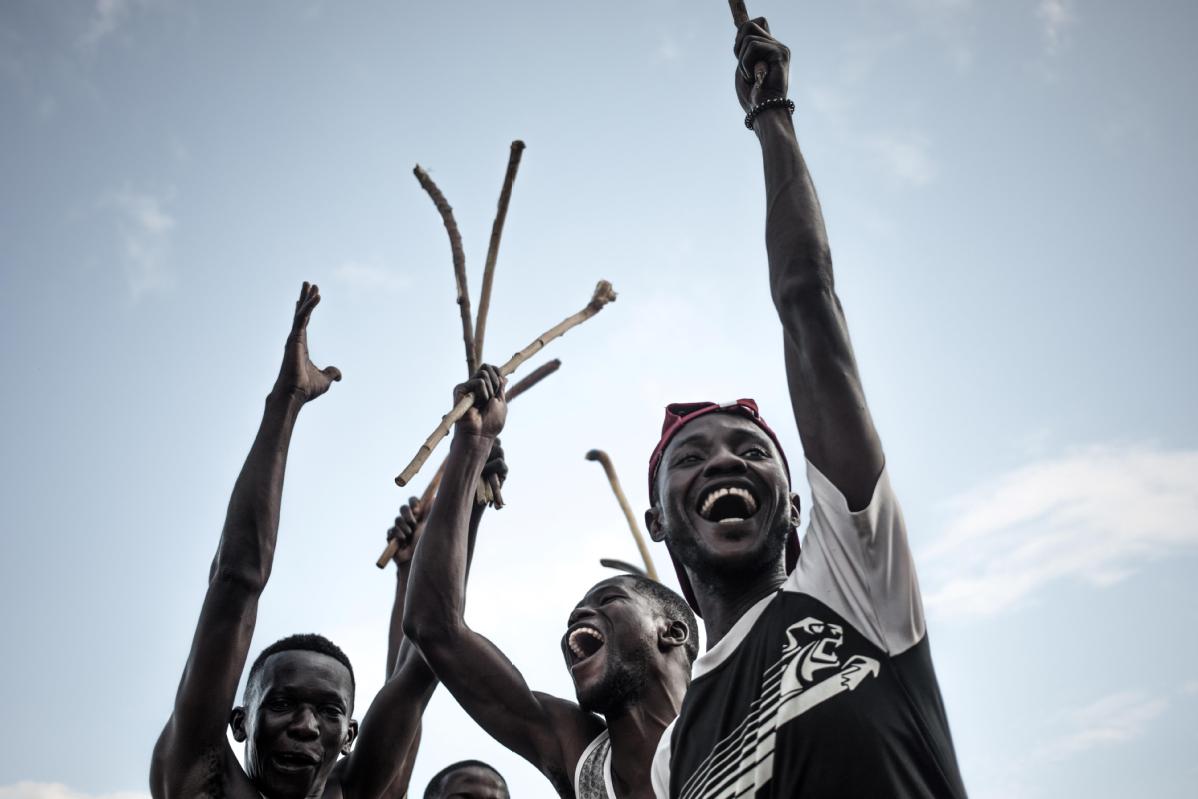BANGUI, Central African Republic - Two teams confronted each other on the dusty sports field, wielding roughly cut sticks to whack a homemade puck at high speed.
For the middle-aged and beyond, the sight of this rugged game triggered distant memories of happier times.

Ngbaba players wield wooden sticks before a game in Bangui, the Central African Republic, on Aug 8. (Photo: Agencies)
The sport, known as ngbaba, is unique to the Central African Republic. It has been hauled back from near-death.
Once played widely in streets and villages, ngbaba - pronounced "g'baba" - has simple rules and requires speed, dexterity and a dose of fearlessness.
Players hew a thin stick, roughly about as long as their arm and slightly curved at the end, and use it to hit a puck carved out of an old pair of rubber sandals.
If the puck lands in the opposing side of the pitch, the other team has to make sure that they get to it quickly to keep it moving and hit it back over to the other side.
The aim is to avoid the puck landing face down in your half of the pitch.
At this match, played on a sports field at the University of Bangui, the challenges and skills of ngbaba were on clear display.
To reach the puck in time requires lightning sharp reflexes, and it takes quick thinking and team coordination to mount a counterattack.
"It's years since we've seen this," said Terrence, 31, as he prepared to take to the field. "It brings back good memories for everyone."
Jean, a student kicking his heels in the shade of the mango trees as he awaited his turn to play, said ngbaba belonged to the time before social networking and mobile phones.
"In the old days, young people only had ngbaba for leisure," he said.
Sonek Langate, head of the Baila association that has launched ngbaba's rebirth, said: "Every time we organize a match, everyone wants to take part."
"We have to revive this game, especially among the young generation. We have a culture and we should value it."
Ngbaba is played only in the Central African Republic, one of the poorest, most war-ravaged countries in Africa.
But how the game began is unclear.
Neither players nor spectators at the match had any idea, nor did a local history professor.
Michel, a gnarled old man who is the university archives watchman, recalled that "it was already being played in the 1970s."
His theory: The sport developed from children who watched western sports on TV after the country began to get television.
The idea is tempting, given the clear similarity with mega-sports like ice hockey and baseball.
Yet games using sticks and a ball or other object have a history that long predates these modern sports - and some speculate that ngbaba's roots may be much older.
Many hurdles lie ahead before ngbaba recovers its former glory.
"These days, young people prefer to play soccer or basketball, because they have a better chance of making a living from those sports," said Jean, the student.


